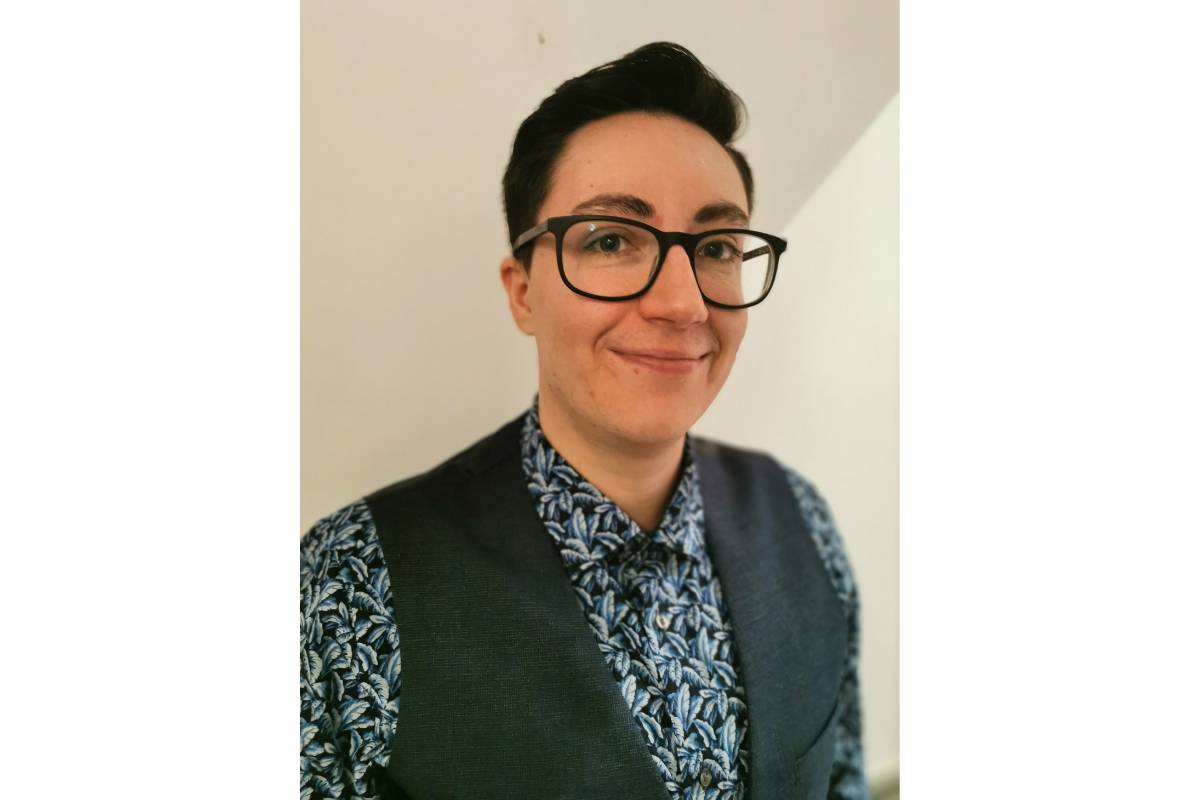
A Day In The Life Of: Jamie Lowe
Business
Name:
Jamie Lowe
Job title: Financial Planner
Pronouns: They/ him

1. Please tell us a bit about yourself and your career so far?
I’ve worked in financial services since I left uni doing a business studies and economics degree in 2011, aside from a gap year working in care. I’ve worked in insurance then banking, and I’ve been a financial planner for over three years and decided to set up my own business so that I can serve the LGBTQ+ community better. I’m so excited to be self-employed. I know it’ll have challenges but I’m ready for everything that comes with it.
2. Can you tell us about your current role?
I work with a mixture of businesses and individuals (after all, it’s individuals who work in the businesses). Whether you’re Richard Branson or Joe Bloggs, everybody has their own income, and needs to prioritise and make choices. It’s my job to get to the bottom of what’s important.
Some people have specific goals, I have the privilege of helping to make their dreams come true. I’ve helped clients with a variety of goals, examples might be making sure they can afford an operation as part of their transition and still afford to retire (retiring early is a very common one), having a once in a lifetime holiday, buying a new home or insuring themselves so they don’t have to worry about themselves or their family if they can’t work or pass away.
3. What does a typical day look like for you?
Since starting my own business, the main thing is getting my name out there to attract clients. I do a mixture of networking, getting to know people and arranging to speak to people about topics relevant to them (retirement planning, inheritance tax, insurances etc.).
Once I’ve found people who might have something that I can help them with then we have a chat, probably over a cup of tea. I meet them again when they get some paperwork together, for example pension and bank statements and we’ll talk about their goals in a bit more detail. Between then and our next meeting, I do some background work to put together a plan to achieve their goals. Once I’ve done that, I talk them through their plan. From there, we meet regularly to make sure that they’re still on track. I can see clients who are at any stage of this journey any day of the week.
4. What excites you the most about your work?
I got into this job to help people. There’s nothing more rewarding than knowing I’ve put people in a better position.
I met my first financial planning client just over three years ago and he retired earlier this year. When we first met, he’d been working overtime as much as possible for years to save money. He was counting down to retirement but didn’t know when it would be, or whether he would have enough to live on. He and his wife wanted to move to The Wirral to be nearer her family. I nearly shed a tear when he sent me a picture from his new home - he and his wife were sat on their porch looking at the river and you could see Liverpool across the water.
5. Have you learnt anything new since starting this job?
A good financial adviser will always carry tissues. Money isn’t the be all and end all, far from it. When it comes to money, it’s what you do with it that counts and that can be very emotional; there have been a lot of meetings when clients have cried. That’s when I know that we’ve got to the key things that will change their lives for the better, and therefore how I can help them.
6. What made you want to pursue this profession? Was it the career you always expected to take?
When I was five years old, I went with my mum to see her financial adviser. I asked who the adviser was and she said, “that’s the person who helps me with my money”. I thought it was brilliant because I had to make choices about whether to save up for big things like toys, or spend all of my pocket money on sweets. I knew grown-ups had to do the same but with more money and more things to buy.
7. What are some of the big challenges of this work?
There are so many confusing things in the media - everyone has a different level of knowledge. Plus, regulations and products on offer change often. My clients don’t need to have any background knowledge, that’s my job. It’s difficult to know how to give - enough information so that they are comfortable and without baffling them with science.
8. What is something people probably don’t realize about your profession?
My job can be very technical and I’ve spent years studying and taking exams, which might not be a surprise. I need to be a translator and filter. Through all the rules, regulations, products and providers, I tell people snippets of what’s actually involved in what we’re doing because they don’t need to know much about what it is, just what it does for them.
As I mentioned previously, my job is about getting to the bottom of what’s important to someone. It takes someone a lot of trust to show you how they spend their money, what’s important to them and encourage them to make changes. There are a lot of times when I’ve felt like a therapist.
9. As someone who is LGBTQ+, have you always felt supported at work?
I’ve been really lucky with the companies that I’ve worked for, especially because financial services are typically behind the times. My business, True Self Wealth Ltd, is an authorised representative of St. James’s Place who are striving to encourage diversity. They have been incredibly supportive about my business plan; I’ve been open about wanting to predominantly (but not exclusively) help LGBTQ+ clients.
10. What interview tips would you give someone who’s interested in applying to a similar role?
Like any interview, preparation is key and you do your homework on the company. Don’t forget how much of financial planning is a sales role. Before working in sales, if someone mentioned salespeople, I thought of Matilda Wormwood’s father - in it for themselves and willing to cheat people to get what they want. Sales isn’t a naughty word - every time someone buys something, another person has sold it to them. People love to buy things because it fulfils their needs and if it doesn’t, then you shouldn’t sell it. Be honest, be genuine and be enthusiastic.
11. What advice would you give someone wanting to start a career in your profession?
Find a financial adviser to look at your own circumstances. The best way to understand new things is for it to be relevant to you. If you can imagine yourself doing what they’ve done, then it might be the career for you.

